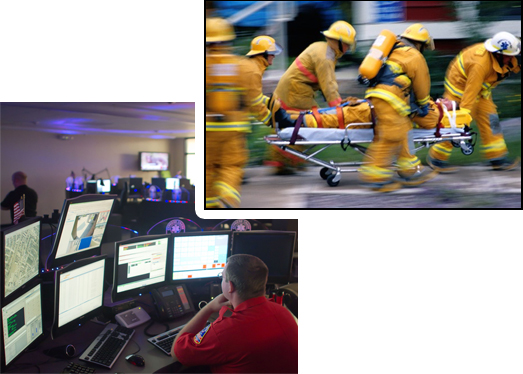These are a good starting point for an Organization in the beginning phase of developing or evaluating its Emergency Operations Plan. They are low-stress events conducted in a supportive, learning-based environment. They serve to familiarize personnel with existing plans, policies and procedures. Discussion-based Exercises are strategic in nature, focusing on policy-related matters. OneStar staff lead the discussion process and direct Exercise participants towards meeting the intended Exercise objectives.

call: 724.433.9284
"The attacks on 9/11 demonstrated that even the most robust emergency capabilities can be overwhelmed if an attack is large enough."
"9/11 Commission Report”

Exercises are either Discussion-based or Operations-based. All exercises are compliant with the U.S. Department of Homeland Security's
Exercise & Evaluation Program ("HSEEP").


Workshops are designed to build specific products, such as a plan or procedure. They require more participant interaction than a seminar and use breakout sessions to more thoroughly explore concepts and ideas. This is the setting in which to obtain consensus about new ideas, concepts and procedures.
Seminars are informal discussions conducted to orient personnel to either new or updated / revised strategies, plans, policies, protocols, resources or concepts.
Table top Exercises involve key personnel, elected or appointed officials and other senior staff who meet to discuss policies, plans and procedures as they are applied to simulated scenarios. The scenarios are managed by OneStar consultants to generate more in-depth discussion among participants, emphasizing a deliberate, problem-solving approach instead of the fast-paced setting that occurs in an actual incident.

Operations-based Exercises include an actual response element featuring the mobilization of personnel, apparatus and other assets. They are more complex and create a more stressful environment that participants are likely to encounter when managing an actual incident. Operations-based Exercises validate plans, policies and procedures while clarifying the roles and responsibilities of participants. They usually follow Discussion-based Exercises in order to validate the lessons learned from those Exercises.

A Functional Exercise can involve single or multi-agency participation in a simulated response to an incident (no actual apparatus or assets deployed). The most common use of a Functional Exercise is to evaluate the management of Emergency Operation Center (EOC), Command Post or other headquarters-type location. Functional Exercises emphasize rapid decision-making in a high-stress environment.
A Full Scale Exercise is a multi-agency, multi-jurisdictional activity that involves actual response as if a real incident has occurred. OneStar consultants design scripted Exercise scenarios that require response of apparatus, personnel and other resources in a realistic, high-stress setting. A Full Scale Exercise will assess response plans and procedures under simulated crisis conditions, and usually serves as the culminating event of a comprehensive Emergency Preparedness Exercise Program.
A Drill is used to test a single specific operation or function within a single entity (for example, a Police Dept. SWAT Team conducts an Active-Shooter Drill). These are supervised, coordinated Exercises commonly used to provide training on new equipment, to develop new procedures, or to maintain proficiency in current applications.




